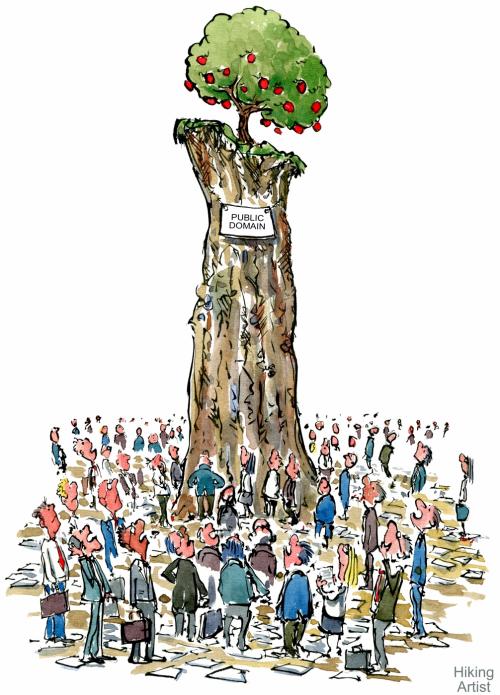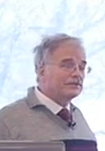
We didn’t have time for all the videos he wanted to show last time, so Chuck Metalitz is doing it again: A marathon (well, four hours or so) of animations, lectures, documentaries, and other formats, from America, Canada, Australia, Britain, and maybe a few others, including people we do not necessarily identify as Georgists. Most of these are about three to fifteen minutes, with longer ones represented by extracts. You’re welcome to stop by any time during the show; do not feel obligated to attend the entire session.
Just about all of these videos are intended for an audience not familiar with Henry George or, in many cases, not even conscious of political economy. That probably describes some of your friends or professional colleagues, so bring them along.
We will have some sort of light refreshments. The event is free, with donations welcome. Also welcome are suggestions for relevant videos which we might not be aware of.
Between 1948 and 1973, Americans’ real wages rose almost as fast as their productivity. After 1973, productivity grew 147% but wages rose only 19%. This raises two questions:
(1) If workers getting less, who is getting more?
(2) Is there a way to restore the balance?
To solve the problem of poverty, and the many other problems that follow from it, ordinary workers need higher wages. George Menninger describes how to raise wages without interfering in the free market and without taking anyone’s earnings.
George Menninger is an instructor at the Henry George School of Chicago, and attendees at this free program will have the opportunity to sign up for his Progress & Poverty course.
You can sign up for this free event thru Eventbrite, or RSVP directly by email.
In the 19th Century, Henry George proposed to end poverty by recognizing a clear and logical distinction between private property and community property. America took a different path, but George’s proposal remains valid and would still provide widespread prosperity. Chuck Metalitz explains.
Attendees at this free event will have the opportunity to sign up for the Progress & Poverty course which examines these ideas in much greater detail.
Between 1948 and 1973, Americans’ real wages rose almost as fast as their productivity. After 1973, productivity grew 147% but wages rose only 19%. This raises two questions:
(1) If workers getting less, who is getting more?
(2) Is there a way to restore the balance?
To solve the problem of poverty, and the many other problems that follow from it, ordinary workers need higher wages. George Menninger describes how to raise wages without interfering in the free market and without taking anyone’s earnings.
George Menninger is an instructor at the Henry George School of Chicago, and attendees at this free program will have the opportunity to sign up for his Progress & Poverty course.
No reservation is required, but you can let us know by email that you’re coming.
Between 1948 and 1973, Americans’ real wages rose almost as fast as their productivity. After 1973, productivity grew 147% but wages rose only 19%. This raises two questions:
(1) If workers getting less, who is getting more?
(2) Is there a way to restore the balance?
To solve the problem of poverty, and the many other problems that follow from it, ordinary workers need higher wages. George Menninger describes how to raise wages without interfering in the free market and without taking anyone’s earnings.
George Menninger is an instructor at the Henry George School of Chicago, and attendees at this free program will have the opportunity to sign up for his Progress & Poverty course.
No reservation is required, but you can let us know by email that you’re coming.
In the 19th Century, Henry George proposed to end poverty by recognizing a clear and logical distinction between private property and community property. America took a different path, but George’s proposal remains valid and would still provide widespread prosperity. Chuck Metalitz explains.
Attendees at this free event will have the opportunity to sign up for the Progress & Poverty course which examines these ideas in much greater detail.
Recent books by Scott Baker and Tom Tresser (ed) assert that America is not Broke and Chicago is not Broke. They’re right, of course, and neither is Illinois. Using principles outlined by Henry George, this presentation will show how the community could choose to collect the value it creates, funding its needs without discouraging productive work.
Metropolitan Planning Council’s Alden Loury will discuss his research into the costs that racial and ethnic segregation impose on all of us here, and might be persuaded to hint at the recommendations to come from phase 2 of the study. We have a post with a bit more information.
Recent books by Scott Baker and Tom Tresser (ed) assert that America is not Broke and Chicago is not Broke. They’re right, of course, and neither is Illinois. Using principles outlined by Henry George, this presentation will show how the community could choose to collect the value it creates, funding its needs without discouraging productive work, and without burdening the earning power of the most needy.
This is an update of material originally presented in May of this year. While subsequent developments have transferred some of the economic distress from governments to citizens, there is no indication that the politicians or other interest groups involved admit any understanding of the fundamental economic principles described here.
“The purpose of Newspeak was not only to provide a medium of expression for the world-view and mental habits proper to the devotees of IngSoc, but to make all other modes of thought impossible. It was intended that when Newspeak had been adopted once and for all and Oldspeak forgotten, a heretical thought – that is, a thought diverging from the principles of IngSoc – should be literally unthinkable, at least so far as thought is dependent on words.“
— George Orwell

Something like this has happened to the field of economics, says Dan Sullivan. Terms which had clear meanings to Adam Smith, J S Mill, and other classical economists have got distorted and redefined– or obliterated– to prevent serious discussion of economic issues. Going back to the roots of political economy, Dan suggests the real point of a proper science of economics would be to efficiently satisfy the desires of the people, both individually and collectively.
Dan will help us distinguish between “rights” and “privileges,” “investments” and “acquisitions”, and several distinct concepts that all get called “wealth.” He’ll address the difference between “means of production” and “capital,” and differentiate “human capital” from modern slavery.
You can understand today’s economic issues such as minimum wages, tax policy, international trade, housing costs, and unemployment, but only if you have a clear idea of the fundamental terms. These terms can be readily comprehended by ordinary people and do not lead to any particular “left” or “right” public policy, but they facilitate informed communication.
There will of course be time for questions and discussion.
Based in Pittsburgh, Dan Sullivan is a popular speaker on economic issues, and Director of Saving Communities
